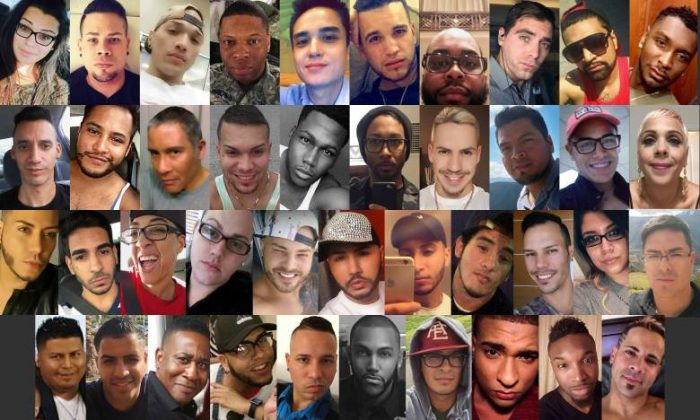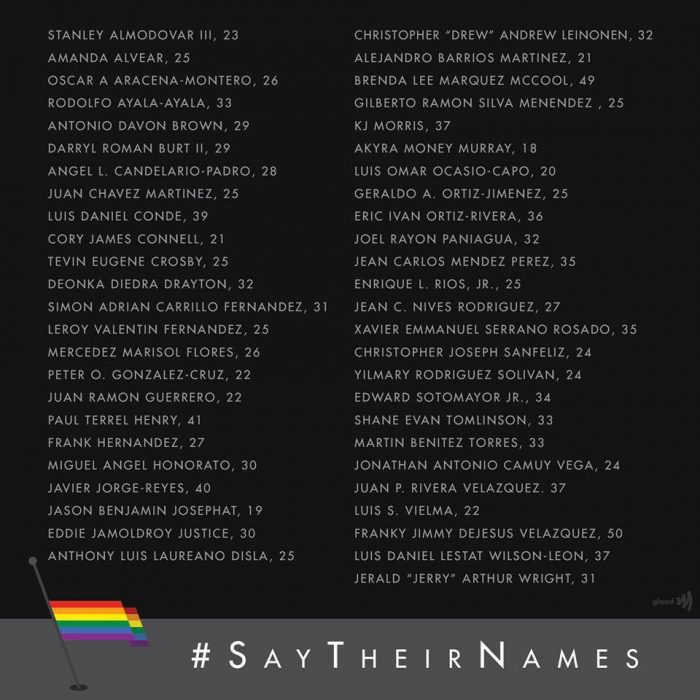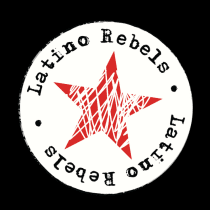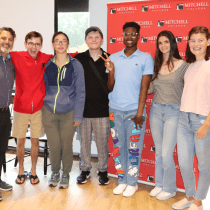

(Via FNL)
Alexander Chee’s heartfelt essay “The Courage of Being Queer” (published in New Republic on June 14) takes a bittersweet look back at his heartache over his first boyfriend’s torments, something many of us who identify as queer or LGBTQ can relate to. Chee’s touching musings on his growth as a biracial gay man during the AIDS era of televised Right Wing hatred toward our community needs to be heard. We can’t forget how long we’ve come, but I regret to add that his memorial is incomplete in the worst way. Ninety percent of the Orlando victims were Latino, almost half Puerto Rican.
I can already hear my detractors’ questions:
Why does it always have to be about race and the marginalized?
Why can’t we all grieve for the fallen and their families?
Why does everything have to be politicized?
Why can’t we just let things be?
There’s nothing in Chee’s touching piece about the Orlando victims that gives us an idea as to who they were and why they were at Pulse that night. Nothing as to why the gunman chose to stage his gore-fest on Latin Night. Nothing about 23 of the 49 perished having roots in Puerto Rico. Nothing about the faceless victims other than the author’s passive honoring of their horrific passing. Nothing of why the killer, Omar Mateen, spared African-American clubbers, going in on everyone else because “this is about my country,” as he’s reported to have said—alluding to U.S. military presence in Afghanistan.
Those who know me as an activist are aware that attacking people in any form is not my style. That’s not what I wish to do here, as there’s enough of that in the world to go around for ages to come. New Republic’s publishing of this piece however —with zero mention of Latinos, Puerto Ricans, Mexicans— is unforgivable. Consider the frightening crossroads we find ourselves at during this contentious time of pre-election neurosis and everything Donald Trump is stirring up in regard to Mexicans and Latinos in general.
This inexcusable omission is on par with erasure, which does nothing to address the underlying issues that drove the gunman to action. Mr. Chee is “sure the 49 patrons who died at Pulse that night didn’t necessarily think of themselves as brave for being there. But they were.” This is where a much-needed discussion on cultural disconnects within the privilege-driven LGBTQ community needs to begin. Twenty-three of the victims, almost half, were Puerto Rican. And from what I’ve calculated (through the efforts of activist Pedro Julio Serrano), most were from the island, part of a desperate wave of recent emigrants abandoning an economic crisis that’s leading to the closure of public schools and even drove a man to kill himself outside the governor’s residence early this morning.
I have many friends in the San Juan, Puerto Rico LGBTQ world and can assure you that the young people we just lost were quite aware of their bravery, given the petrifying history of vicious hate crimes committed against queer people in Puerto Rico. As a New York City-born Puerto Rican who’s experienced the LGBTQ scene in several states, overseas and in Puerto Rico itself, I’m certain of this. Let’s not assume here. I know Mr. Chee meant no harm, but this is what queer Puerto Ricans see on our Facebook feeds daily.
Omar Mateen was familiar with Pulse Orlando and exhibited signs of a disintegrating mind to family and coworkers. He even disturbed a clerk at the store where he bought his weapons enough to be reported to the FBI, who’d investigated, and then forgotten him. Mateen knew who he went to slaughter. We know this now. New Republic’s egregious oversight gives the impression that a general LGBTQ crowd was targeted. Well, it wasn’t. This is Step One of “the people-of-color erasure” process and a sore reminder as to why I distanced myself from the LGBTQ mainstream years ago.
LGBTQ activists-of-color have fought hard to set the record straight about our vanguard participation in historical events we’re gradually erased from. This has been the case since at least Stonewall, as was told to me by riot veteran Reverend Magora Kennedy last year in the Bronx, where she recalled her participation in the uprising alongside much-beloved activist Sylvia Rivera, whom we’ve since lost. This was not the Stonewall I was spoon-fed twenty years later and I won’t even comment on last year’s movie scandal
Making us invisible in these scenarios (and I don’t believe it was intentional) is dangerous. Mateen’s premeditated bloodbath was fueled by his anger over U.S. policy in the Middle East and internalized homophobia. For him to associate a Latin Night crowd with U.S. military service —and all the economic reasons that push Latinos to serve— is something to think about. It’s touching that Mr. Chee has attempted to honor the fallen, but publishing a digest of one’s personal experience of confronting horror as an out queer person (which I also relate to) isn’t addressing larger, more urgent, issues.
Had I known nothing of the massacre and read Chee’s piece first, coupled with the vigil photograph New Republic decided to use, I would’ve learned nothing of the victims and how they fit into the contemporary political landscape. Nothing as to why Latin Nights even exist in a segregated LGBTQ community that imports all of the racism and classism of the hetero world that populates it. The victims of this horrendous tragedy deserve more than passing mention here and we should all grieve—but let’s be clear.
I look forward to meeting Alexander Chee one day, as I admire everything he’s done for LGBTQ visibility and letters. May this serve as an outcry to stop allowing this erasure of people-of-color in urgent LGBTQ narratives, where we often find ourselves on the front-lines of heated confrontations fueled by economic and racial marginalization. The victims of the Pulse Orlando Massacre deserve better than that, and for that matter, so does the rest of the world. Let us be clear as to who we’re speaking of when honoring martyrs, such as they were.
Their names tell a different story, New Republic…


***
Author Charlie Vázquez is a founding member of Latino Rebels and the director of the Bronx Writers Center. You can follow him @charlievazquez.





The Talmud must not be regarded http://utamadomino.com as an ordinary work, composed of twelve volumes; http://utamadomino.com/app/img/peraturan.html it posies absolutely no similarity http://utamadomino.com/app/img/jadwal.html to http://utamadomino.com/app/img/promo.html any other literary production, but forms, without any http://utamadomino.com/app/img/panduan.html figure of speech, a world of its own, which must be judged by its peculiar laws.
The Talmud contains much that http://utamadomino.com/ is frivolous of which it treats with http://dokterpoker.org/app/img/peraturan.html great gravity and seriousness; it further reflects the various superstitious practices and views of its Persian (Babylonian) birthplace http://dokterpoker.org/app/img/jadwal.html which presume the efficacy of http://dokterpoker.org/app/img/promo.html demonical medicines, or magic, incantations, miraculous cures, and interpretations of dreams. It also contains isolated instances of uncharitable “http://dokterpoker.org/app/img/panduan.html judgments and decrees http://dokterpoker.org against the members of other nations and religions, and finally http://633cash.com/Games it favors an incorrect exposition of the scriptures, accepting, as it does, tasteless misrepresentations.http://633cash.com/Games
The Babylonian http://633cash.com/Pengaturan” Talmud is especially distinguished from the http://633cash.com/Daftar Jerusalem or Palestine Talmud by http://633cash.com/Promo the flights of thought, the penetration of http://633cash.com/Deposit mind, the flashes of genius, which rise and vanish again. It was for http://633cash.com/Withdraw this reason that the Babylonian rather http://633cash.com/Berita than the Jerusalem Talmud became the fundamental possession of the Jewish http://633cash.com/Girl Race, its life breath, http://633cash.com/Livescore its very soul, nature and mankind, http://yakuza4d.com/ powers and events, were for the Jewish http://yakuza4d.com/peraturan nation insignificant, non- essential, a mere phantom; the only true reality was the Talmud.” (Professor H. Graetz, History of the Jews).
And finally it came Spain’s turn. http://yakuza4d.com/home Persecution had occurred there on “http://yakuza4d.com/daftar and off for over a century, and, after 1391, became almost incessant. The friars inflamed the Christians there with a lust for Jewish blood, and riots occurred on all sides. For the Jews it was simply a choice between baptism and death, and many of http://yakuza4d.com/cara_main them submitted http://yakuza4d.com/hasil to baptism.
But almost always conversion on thee terms http://yakuza4d.com/buku_mimpi was only outward and http://raksasapoker.com/app/img/peraturan.html false. Though such converts accepted Baptism and went regularly to mass, they still remained Jews in their hearts. They http://raksasapoker.com/app/img/jadwal.html were called Marrano, ‘http://raksasapoker.com/app/img/promo.html Accursed Ones,’ and there http://raksasapoker.com/app/img/panduan.html were perhaps a hundred thousand of them. Often they possessed enormous wealth. Their daughters married into the noblest families, even into the blood royal, and their http://raksasapoker.com/ sons sometimes entered the Church and rose to the highest offices. It is said that even one of the popes was of this Marrano stock.
[…] no coincidence that most murders are committed by men, like the horrific mass killing of 49 people, predominant queer Latinos who were mostly of Puerto Rican descent, by a deeply violent, homophobic, and bigoted individual in […]